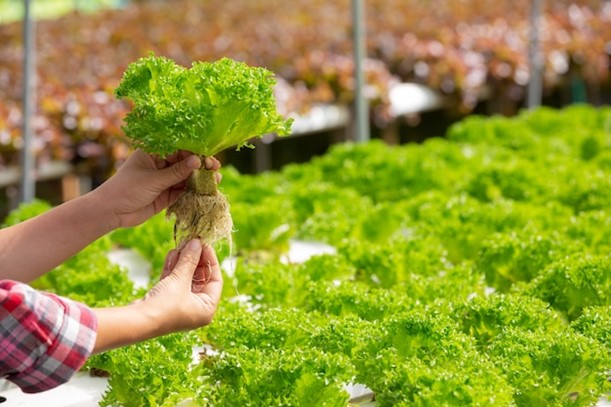
Producing large quantities of food through intensive crops and livestock farming has long been the panacea for our fast-growing world, also known as industrial farming. Also, it has a significant negative impact on the environment, leading to worries about the future of food production. Now, people are looking to sustainable agriculture as a way to undo the damage caused by industrial farming and protect the environment for future generations. The hope is that sustainable farming practices will allow us to produce food while preserving our planet.
Sustainable farming is all about growing food and raising animals in a way that doesn't damage the environment or use up natural resources. The goal is to meet today's needs while still preserving things like healthy soil, clean water, and biodiversity for future generations. This type of agriculture aims to have a less negative impact on the planet overall. Practices focus on sustaining soil nutrients, reducing erosion, conserving water, and protecting wildlife habitats. Adopting sustainable techniques is key if we want to keep feeding people while also taking care of the earth. With the world population increasing, sustainable methods allow us to produce enough food with less strain on the planet. This method can also assist agriculturalists in meeting the demands of a growing global population and providing more people with a less
carbon footprint.The UN Food and Agriculture Organization says that for farming to be sustainable, it has to check a few boxes. First, it needs to produce enough food and income for people today. But it also can't ruin things for future generations - the practices must also protect the environment. On top of that, sustainable agriculture has to be fair and help all types of people, especially the extremely poor. This last part matters because most extremely low-income families depend on farming to survive. So changes in agriculture can majorly affect poverty levels.
With climate change already causing damage, we must shift to more sustainable farming. The techniques have to work for both people and the planet long-term. There's no time to waste in the transition, especially with how many livelihoods are tied to agriculture. Therefore, environmentally-friendly farming has to be productive and profitable too. If not, the changes won't stick or help struggling families. We need agriculture that takes care of the earth without leaving people behind.
It's really important that we start farming in more sustainable ways. Using environmentally- friendly practices can help make sure we have enough food long-term and reduce climate change impacts. Here’s why sustainable agriculture practices are important: -
Intensive agriculture consumes massive amounts of water, making agriculture responsible for much global freshwater use compared to eco-friendly and sustainable farming practices. On the other hand, taking advantage of innovative methodologies such as drip irrigation and planting perennial crops with deep roots that require less water while using practices like contour farming and filter strips to rescue water bodies from pollution.
The significance of soil cannot be overlooked. It plays a vital role in erosion prevention, water retention, and nutrient cycling. Utilizing different types of sustainable agriculture inevitably protects soil health, ensuring its longevity and potential to sequester carbon, mitigating the adverse effects of climate change.
Farmers can lower their dependence on nonrenewable energy, reduce chemical use and save scarce resources. Maintaining healthy and replenished land is crucial, especially with the growing population and increasing demand for food.